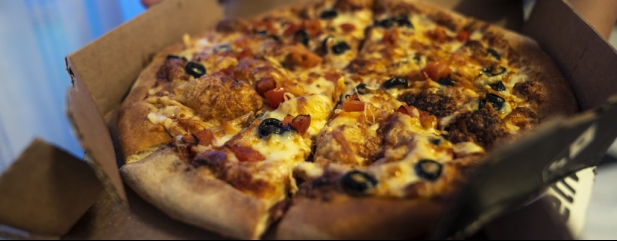Archived article
Please note that tax, investment, pension and ISA rules can change and the information and any views contained in this article may now be inaccurate.
Smithson is known for quality, so why the appetite for chicken and pizza?

Investment trust Smithson (SSON) has built a reputation for investing in quality companies and its performance has been good since launch in October 2018, up 65.8% versus 33.4% from the MSCI World SMID index benchmark to 31 March 2021. Investors may therefore wonder why it is backing chicken and pizza businesses.
These are highly competitive, commoditised parts of the fast-food industry with no barriers to entry and limited brand loyalty. One would normally associate a quality business as having loyal customers, operating in a sector with large barriers to entry and having a market niche.
Smithson owns stakes in two different Domino’s Pizza master franchise owners and it recently took a position in Wingstop, a US business that sells chicken and chips.
In 2020, its holding in the UK-listed Domino’s Pizza (DOM) was one of the top five detractors to performance for the investment trust, partially blamed on a weak showing from international interests which are now being exited.
At Smithson’s latest annual shareholder meeting, assistant portfolio manager Will Morgan said about this company: ‘In recent years it hasn’t necessarily been run in the optimal way and it got to the stage where some large franchisees controlled too much of the network in our view. That led to some dispute with management.’
Morgan also said franchisee relationships were strained when Smithson first invested in Domino’s Pizza Enterprises, yet this Australian-listed business has since made good progress. Smithson’s patience has paid off, with the company being among the top five contributors to the trust’s performance in 2020.
‘The UK version of Domino’s has now seen a big overhaul of directors and we believe the prospects for the company should be pretty strong from here as a result. It’s about taking a fundamentally strong business and optimising what it delivers,’ added Morgan.
Perhaps the key attraction to Smithson for the two Domino’s companies and Wingstop is the fact they are all master franchise owners. Companies with franchise business models have often been good investments over the years. Many have been able to pay generous dividends as well as deliver capital growth for shareholders.
Franchise models can take various forms, but what connects them all is their ‘capital light’ characteristics. Each franchisee is expected to provide the capital investment and manage the operations in return for the legal right to use a brand or business process.
The main advantage of such an arrangement is that the master franchise owner can expand quickly and without the need to raise equity or bank debt to facilitate growth.
Wingstop beat expectations with its first quarter 2021 earnings (28 Apr) and announced plans to expand into Canada. During the period it opened 41 net new Wingstop restaurants, a record first quarter that translated to year-on-year unit growth of 11.7%.
Refinitiv scores Wingstop 96 out of 100 for earnings quality, based on components such as cash flow and operating efficiency.
While chicken and pizza may not initially seem like good investments, Smithson is clearly taking the view there is good money to be made if you pick the right franchise owners.
DISCLAIMER: The author owns shares in Smithson
Important information:
These articles are provided by Shares magazine which is published by AJ Bell Media, a part of AJ Bell. Shares is not written by AJ Bell.
Shares is provided for your general information and use and is not a personal recommendation to invest. It is not intended to be relied upon by you in making or not making any investment decisions. The investments referred to in these articles will not be suitable for all investors. If in doubt please seek appropriate independent financial advice.
Investors acting on the information in these articles do so at their own risk and AJ Bell Media and its staff do not accept liability for losses suffered by investors as a result of their investment decisions.
Issue contents
Feature
Great Ideas
- Convatec shares start moving up after it hits half a billion of sales in first quarter
- Google parent Alphabet is a class investment right under your nose
- Stick with Yamana Gold despite share price weakness
- Multi-bagger potential for digital star Panoply
- Jupiter Green: small caps are the best place to make money with the ‘E’ of ESG
- This small cap pick has delivered an eye-popping early return

 magazine
magazine








